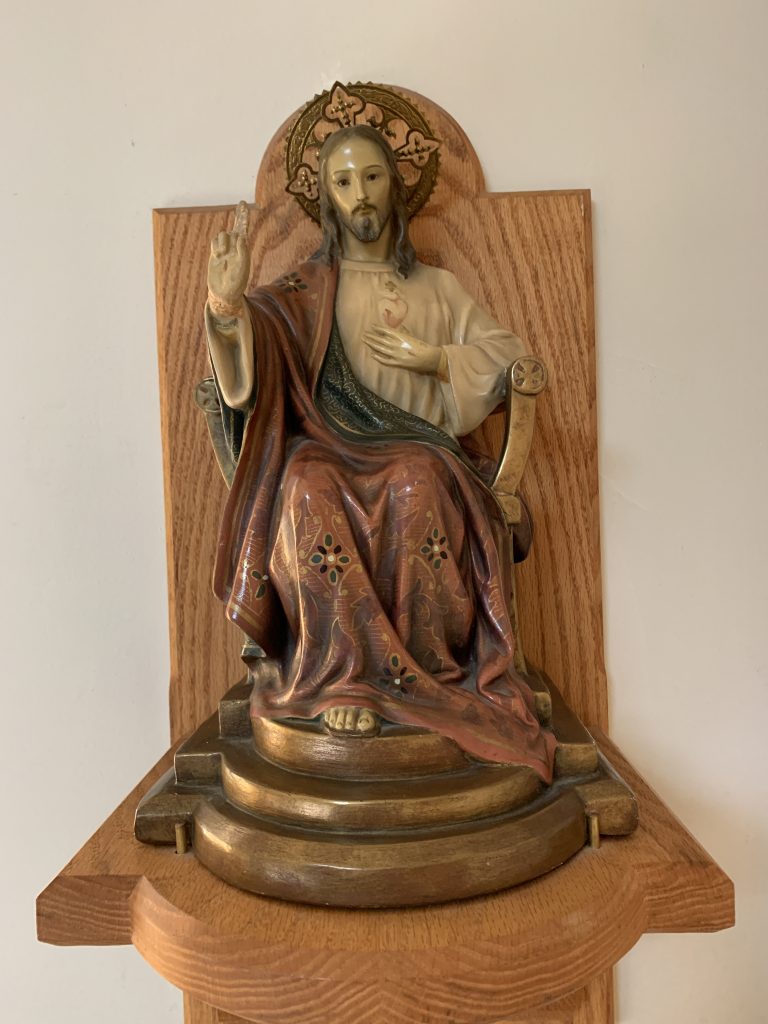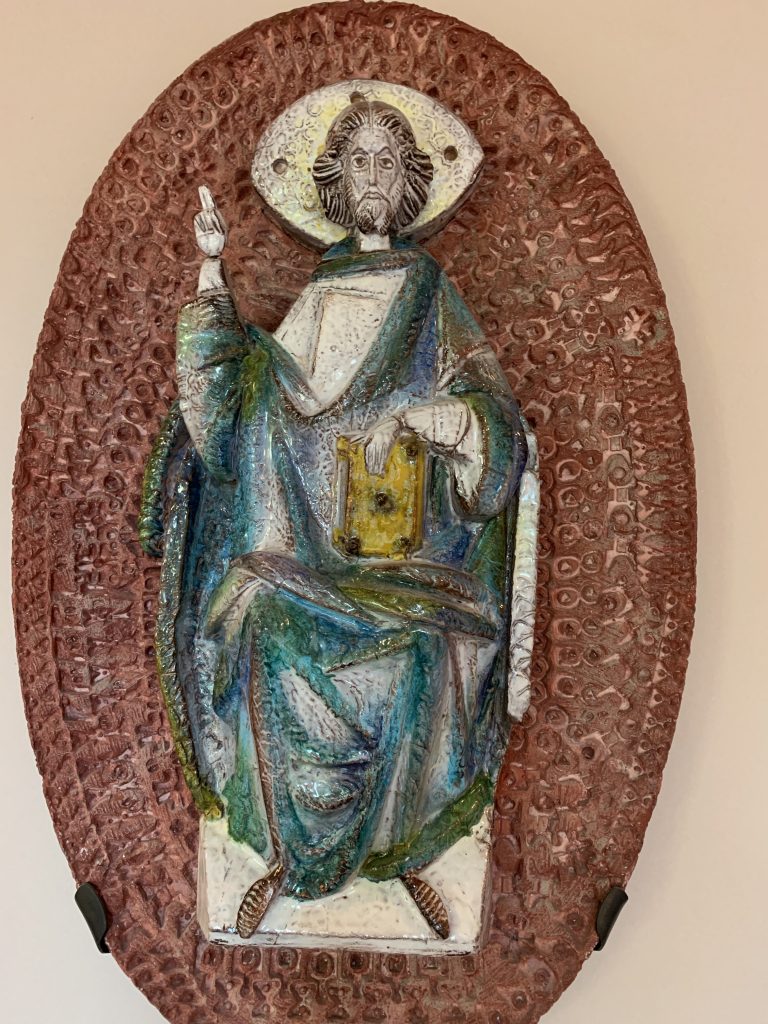In today’s Gospel, we hear Luke’s version of the Beatitudes. (Luke 6:20-26) However, the introduction to this passage caught me off guard as I prayed over it. “Raising his eyes toward his disciples Jesus said:” Generally when scriptures speak of Jesus ‘raising his eyes’ he is in prayer to the Father, or turning his gaze towards the heavens while proclaiming the Kingdom of God.
 But, today, Jesus raises his eyes to his disciples. This is peculiar, but also telling. It almost makes us uncomfortable, having Jesus physically ‘below us’ so that he needs to raise his gaze to meet ours. However, what follows this passage is one of the most well-known instructions of Jesus – the Beatitudes.
But, today, Jesus raises his eyes to his disciples. This is peculiar, but also telling. It almost makes us uncomfortable, having Jesus physically ‘below us’ so that he needs to raise his gaze to meet ours. However, what follows this passage is one of the most well-known instructions of Jesus – the Beatitudes.
Interestingly, Luke by describing the gaze of Jesus, who ‘raises his eyes to his disciples,’ is telling us that Jesus has taken the posture of the Teacher. Namely, Jesus is seated.
I draw attention to this detail, because we do well by remembering that Jesus is our Teacher – he is the Master Teacher!
The Beatitudes teach us much about how to live as a disciple of Jesus, and where we are to direct our gaze. The teachings of Jesus ‘jar’ our worldly understandings and give us the wisdom by which to live in holiness and virtue. The ‘reward’ of the Beatitudes are the person of Jesus himself. First, take a look at what it means to be blessed in the ‘eyes’ of Jesus, and then we will see how St. Paul describes the interior disposition required to live them.
Blessed are you who are poor, for the Kingdom of God is yours. Blessed are you who are now hungry, for you will be satisfied. Blessed are you who are now weeping, for you will laugh. Blessed are you when people hate you, and when they exclude and insult you, and denounce your name as evil on account of the Son of Man.
Rejoice and leap for joy on that day! Behold, your reward will be great in heaven.
Our worldly understanding certainly does not consider it a blessing to be poor, or hungry, mourning or hated. But, when we recognize that Jesus is our greatest ‘possession’, that he is our ‘all’ in good times and in bad, we learn to live ‘in’ that relationship, desiring him above all and in all moments and circumstances of life.
St. Paul knew this truth, and learned well how to live it as a way of life. Here is his instruction in the Letter to the Colossians (3:1-11)
Brothers and sisters: If you were raised with Christ, seek what is above, where Christ is seated at the right hand of God. Think of what is above, not of what is on earth. For you have died, and your life is hidden with Christ in God. When Christ your life appears, then you too will appear with him in glory.
Many of my days begin with a simple prayer, asking Jesus that no matter what difficulties I may face that day, to help me experience the joy of being his disciple, and to never lose sight of him, nor lose my desire for loving and serving him at all times, in all people, in every circumstance.
In short, St. Paul, in fidelity to Jesus the Master Teacher, calls us to continually ‘die to self’ so that Christ may live more fully in and through us.
My friends, take time today and everyday to sit in the presence of Jesus the Master Teacher. Allow him the place his teaching in your heart, and draw you more deeply into his school of love.
Peace,
+pde
7